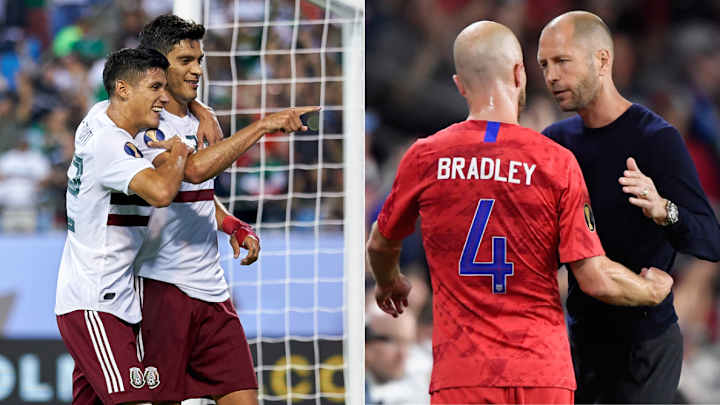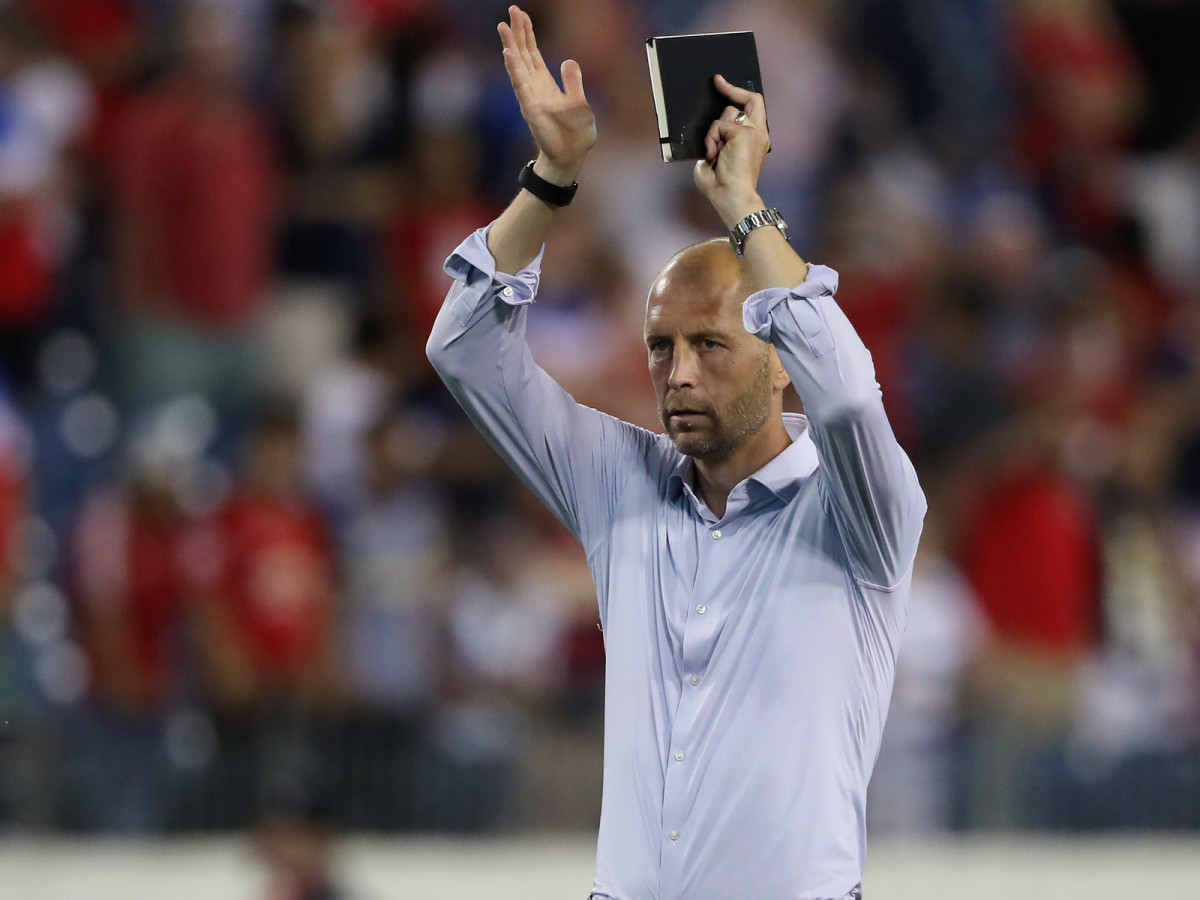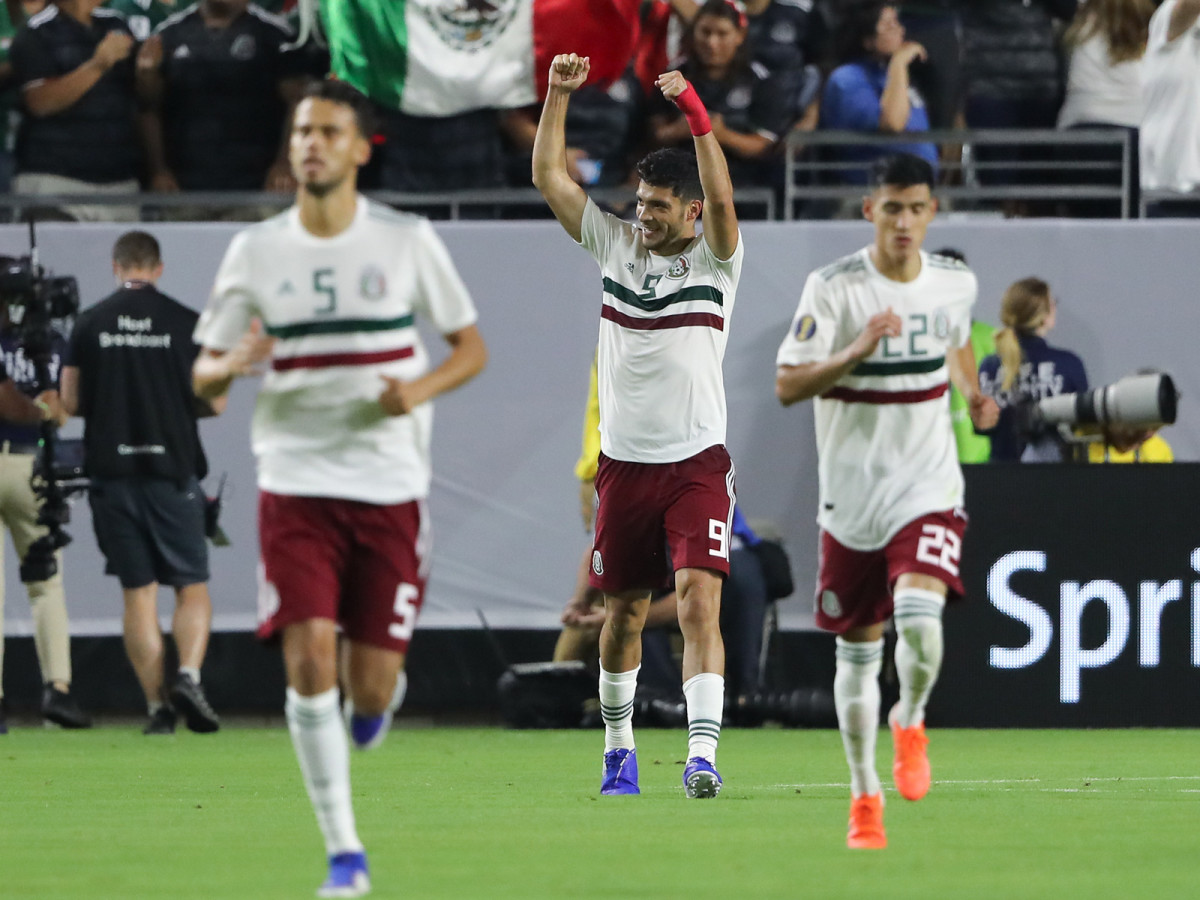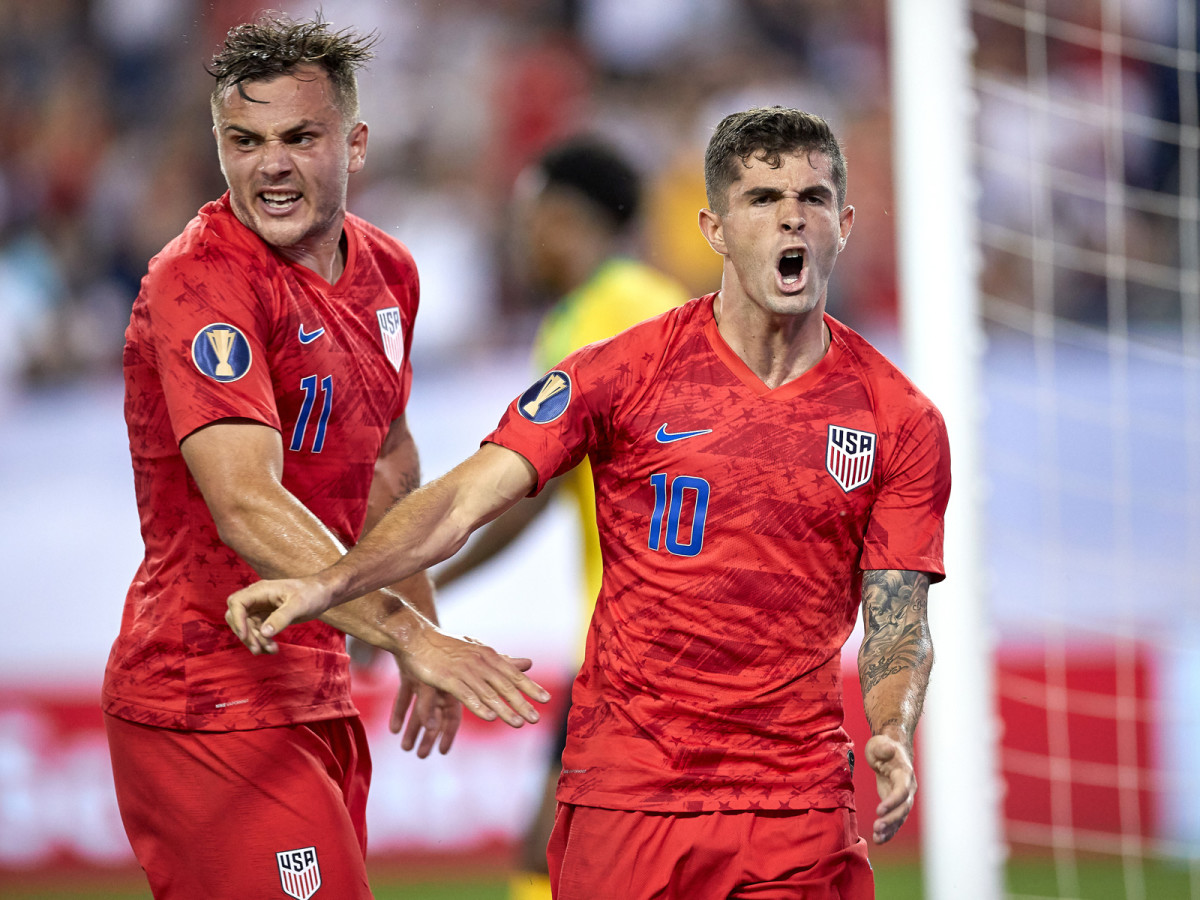Final vs. Mexico Changes Meaning, Perspective of Gold Cup for USA

CHICAGO — Six weeks ago, as a rebooted U.S. men's national team and its new coach kicked off their first summer together, the notion of success was less tangible. It could be defined in different ways.
Naturally, with the Concacaf Gold Cup around the corner, thoughts of a trophy were close to front and center. But this was a program that had been put on pause for a while, and a group that was venturing into the unknown. There were new tactics and a nascent culture. And new players and staff would create new chemistry. So it made sense for that coach, Gregg Berhalter, to take a longer-term, more theoretical approach to discussing success or progress.
“We want to win the title. There’s no question about it. But you don’t know. It could go down where you play an amazing game in the semi [and lose]. You just don’t know how it all turns out,” Berhalter told SI.com as camp began in late May.
So he’d also be watching the way his team negotiated the ups and downs of competition, and whether it blossomed or withered under that spotlight. Would they grasp and start to master Berhalter's system, adapt to injuries and opponents and demonstrate that the national team was back on track toward 2022? After all, this was not a roster selected solely to contend for the Gold Cup.
“We’re trying to sway more towards 2022. That's what we’re trying to do. I’m sure there’s going to be some players that fall in the [win now] bucket, but we’re conscious of 2022,” he said in May.
There’d be several ways to exit this initial summer on or ahead of schedule.
“I think it’s a great challenge for this group to navigate through this tournament—a number of different venues, a lot of travel,” Berhalter added. “I think it’s going to be a good challenge for us, and for this group in particular, it’s how do we deal with all that stuff and stay calm and stay focused.”

Speaking to ESPN following friendly losses to Jamaica and Venezuela, he said, “[The Gold Cup is] about competing. It's about our tactics—the way we play. It's about going through this process and learning together, because tournaments are a learning process for a group. So it's about those three things. Then to me, it's ultimately about putting ourselves in a position to win."
But being in that position felt like it was far from a given. So the Gold Cup was about a lot of things a month ago. But now, after five consecutive wins and a solid performance in a semifinal defeat of Jamaica, it’s about only one. The meaning of success has evolved. It’s become binary. It’s black and white.
Asked about his definition of success on Friday before training at the University of Illinois-Chicago, Berhalter said simply, “I’ve said all along that we want to win this tournament.”
And that was it. A final against an archrival has a funny way of narrowing your focus and raising the stakes.
“There’s no better game in the world to play than a final against Mexico,” said de-facto U.S. captain Michael Bradley. “From the second that we walked off the field in Nashville [after the semi], every single guy understood what was coming. And whether you’ve played in this game or haven’t—U.S.-Mexico, final, Chicago—speaks for itself.”
They’ve both changed. There are new coaches and new faces, and they’re both recovering in a sense—the USA from Couva and Mexico from yet another cuarto partido World Cup failure. And yet their Concacaf dominance continues. The rivals will meet Sunday evening at Soldier Field for the sixth time in a Gold Cup final, and although there’s been an eight-year wait since the fifth installment, the USA and Mexico continue to rule. They’ve combined to win 13 of 14 Gold Cup titles and now have come this far 11 (USA) and nine (Mexico) times, respectively. Nobody else has made the final more than twice.

Paced by an attack led by Wolverhampton Wanderers star Raúl Jiménez (five goals) and LA Galaxy loanee Uriel Antuna (four), Mexico will be favored in front of a sold-out, partisan crowd. Berhalter has declared El Tri the team to beat from the beginning, even though the Americans are reigning champs. But both sides have suffered a bit on their way to Chicago. The Americans (5-0-0) were off their game against Curaçao in the quarters, then endured a 90-minute weather delay against Jamaica. Meanwhile, Mexico (4-0-1) was taken to penalty kicks by Costa Rica and then to extra time by a robust Haitian squad in the semis.
But that’s context. And as we’ve discovered, that’s no longer as relevant.
“When it comes to a final, all that stuff just doesn’t matter,” Berhalter said Friday. “You take all those components, whatever you want to say: long tournament, tired, short rest, this, that, weather delay, two days rest. All that doesn’t matter, because all you want to do is get to the next game and when you get to the last game, you want to win it.”
Longer-term history has little or no bearing either, Bradley said. One could look at Sunday’s game as a renewal of the USA-Mexico rivalry, as Berhalter and Tata Martino take the reins and as a new crop of stars like Antuna and Christian Pulisic take center stage. Or it could be viewed as an opportunity for American redemption, or another chapter in a saga that, for players like Bradley, include the 2015 Confederations Cup playoff loss, the 2017 Gold Cup title, Couva, coach Dave Sarachan’s interim year, etc. But it’s not. There’s something slightly magical about each of these opportunities that’s so overpowering, it leaves everything else in shadow.
“There’s a story for every single guy. There’s a story for the team in any moment. But the reality is, you live in the moment,” Bradley said. “When you play for the national team, there is no better game then playing against Mexico. Honestly, I couldn’t care less to spend two seconds thinking about what it means in any bigger context. We’re two days away from U.S.-Mexico in a Gold Cup final. That’s good enough for me.”

Forward Jordan Morris, who scored the dramatic winner in the 2017 final against Jamaica and has had his fair share of ups and downs the past couple years, agreed.
“Two new coaches, maybe new ideas with each team and everything like that, but it’s going to be a tough game like always. It’s always a rivalry game,” he said. “We’ve put [failures] behind us. You have to put that behind you. This is the first chance to kind of write a new chapter, in this game. It’s pretty exciting.”
Berhalter and Bradley each lauded the camaraderie that’s been built over the past month-plus, and there certainly have been moments—see the pre-lightning display against Jamaica in Nashville—when Berhalter’s system and ideas appeared to be sinking in. Pulisic and Weston McKennie have displayed their superstar potential. Aaron Long, Tyler Boyd, Nick Lima and Paul Arriola are among those who’ve made significant progress toward cementing their international status. Win or lose against Mexico, it looks like an approach and team culture is taking root. And that, at least six weeks ago, could’ve been labeled a success.
Now, however, any Gold Cup post-mortem will be dominated by Sunday’s result, at least for a while. When you’re just 90 minutes from a trophy, it’s hard to think about silver linings. And when Mexico’s the team in the way, it’s hard to think about moral victories.
“There’s two parts to this game,” Berhalter said. “The first thing is, we’re focused on winning the Gold Cup, and Mexico is in our way of winning the Gold Cup. The rivalry side of it, it is what it is. But our intention is try to win this tournament. I think it’s a great opportunity we’re getting to play. I know it’s going to be great atmosphere in the stadium. If you’re a player, if you’re a coach, these are the games you want to be participating in.”
